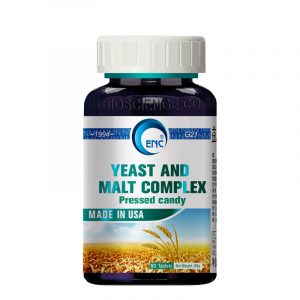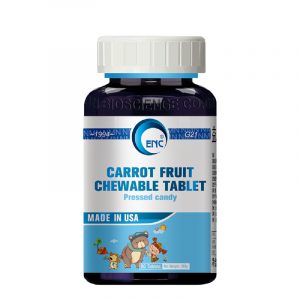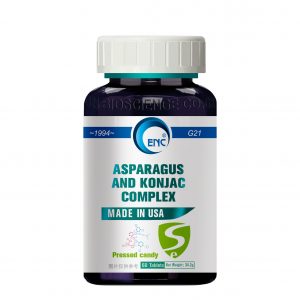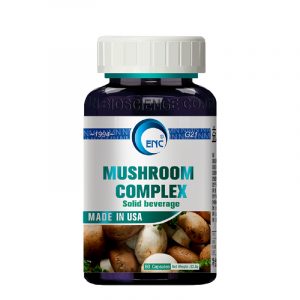All-in-One Immune Booster, Bid Farewell to Influenza Pathogens
[Main Ingredients]: Sorbitol from Japanese Pear, Acai Berry, Chrysanthemum, Pomegranate, Needle Cherry Fruit, Peach Fruit, Blueberry, Citrus, Garlic, Shiitake Mushroom, Pumpkin Seeds. [Product Specifications]: 60 tablets. [Usage]: 2 tablets per day for adults. [Storage]: Store in a cool and dry place, refrigerate after opening. [Suitable for]:
- Individuals with weak constitution, susceptibility to illnesses and colds, and prone to respiratory infections.
- Individuals with weakened immunity seeking to enhance resistance.
- Those looking to prevent colds and viral influenza. [Product Features]: All-in-One supercharged immune formula promotes overall immune system enhancement. Effectively resists bacterial and viral infections, increases and enhances immune cell activity, significantly boosting their ability to neutralize bacteria, viruses, or other sources of infection. It can also promote interferon production, aiding the body’s effective defense against viral attacks (such as colds and flu), preventing the occurrence or worsening of diseases. Scientifically formulated for optimal antiviral effects.
[Nutritional Knowledge]:
Zinc: Zinc has a significant impact on various life-sustaining functions of the body, including:
- Strong immune function
- Integral component of enzymes involved in tissue restructuring and cancer prevention
- Maintenance of good mood, clear thinking, and restful sleep
- Prostate and intestinal health
- Taste and smell Zinc is a component of over 3,000 different proteins and more than 200 enzymes in the body. It is involved in more enzyme reactions than any other mineral. Zinc can increase the production of white blood cells, helping you to fight infections more effectively. It can also enhance the activity of cancer-killing cells and boost your immune system to release more antibodies, as well as accelerate wound healing. Zinc is an essential mineral for maintaining immune health. Insufficient zinc in your body makes you more susceptible to pathogens. Without zinc, your white blood cells cannot function properly. Zinc affects various aspects of the immune system, including neutrophils, natural killer cells, phagocytes, cytokine production, antibody production, and even gene regulation within lymphocytes. Zinc is also involved in many basic cellular functions, including DNA replication, RNA transcription, cell division and activation, and cell membrane stability. Research on the impact of zinc on pathogens has not yet reached a consensus, but many studies have confirmed its strong protective effect. Research indicates that zinc is a “nemesis” for many viruses. Eating foods rich in zinc during the cold and flu season can help the body resist cold viruses. This is because: 1) Zinc can directly inhibit virus proliferation; 2) Zinc enhances the immune function of body cells, especially phagocytes. In addition, some studies have found that zinc can reduce the duration of colds by 50%. The Cochrane Review found that zinc can reduce the duration and severity of various symptoms of common colds. Moreover, preventive zinc supplementation helps prevent colds, reduces the number of days children are absent from school due to illness, and avoids the use of antibiotics.
Quercetin:
Quercetin was discovered by Nobel laureate Albert Szent-Gyorgyi. Quercetin is a natural antioxidant and anti-inflammatory compound found in a variety of fruits and vegetables, including chrysanthemum, rutin, onions, seabuckthorn, etc. Quercetin is known for its antioxidant and antiviral activities. Quercetin has many health-promoting benefits, including reducing inflammation and improving immune system function. Quercetin is a natural compound extracted from plants, safe and reliable, capable of boosting the body’s immune system and resisting viral infections, including type A and type B influenza viruses. Quercetin was originally a bioflavonoid in plants, an antioxidant that plants use to fight viruses and prevent infection and wilting. Due to its antioxidant properties, quercetin has been shown to inhibit the production of proinflammatory cytokines and inflammation. By inhibiting destructive inflammation and potential bacteria, quercetin can prevent serious damage to the respiratory system and other organs. A randomized, double-blind clinical trial published in the Journal of Pharmaceutical Research in 2010 found that giving healthy volunteers over 40 years old 1,000 milligrams of quercetin daily for 12 weeks reduced the rate of respiratory infections by 36%. The time off due to the flu was also reduced by 31%. In other words, quercetin can alleviate upper respiratory infections and prevent work and study disruptions due to the flu.
Quercetin is a flavonoid compound found in plants. In addition to onions, quercetin is also found in many other fruits and vegetables, such as barberry, asparagus, apples, and tea and red wine. One onion is considered a medium-sized onion and contains about 52 milligrams (mg) of quercetin. However, most people usually do not eat a whole onion at once (unless they really like onions), so when you consume onions, you may not get as much quercetin.
Despite the many natural sources of quercetin, most people following a typical Western diet (high in simple sugars and animal products, low in fruits and vegetables) are estimated to consume only 0 to 30 milligrams per day. This is not much considering that research suggests some of the health benefits of quercetin come from supplementation rather than dietary sources, with a daily intake of 500 to 1,000 milligrams.
Quercetin is one of the most studied dietary flavonoids and is associated with various health benefits. The two most significant benefits of this compound are supporting heart health and preventing oxidative stress. Heart Health: Quercetin plays a positive role in supporting healthy blood pressure and endothelial health. The endothelium is a thin layer of cells lining the blood vessels and the heart. It is considered an active organ within the body as it helps control when blood vessels relax or contract. Preventing Oxidative Stress: Everyone experiences oxidative stress, which is caused by an imbalance of harmful free radicals that damage cells and tissues. This process occurs within the body, so while you may not immediately feel the effects of oxidative stress, over time it can impact health and the immune system. Antioxidants can help quell some of this stress. Due to its ability to act as a free radical scavenger and support antioxidant processes, quercetin excels in this regard.











Reviews
There are no reviews yet.